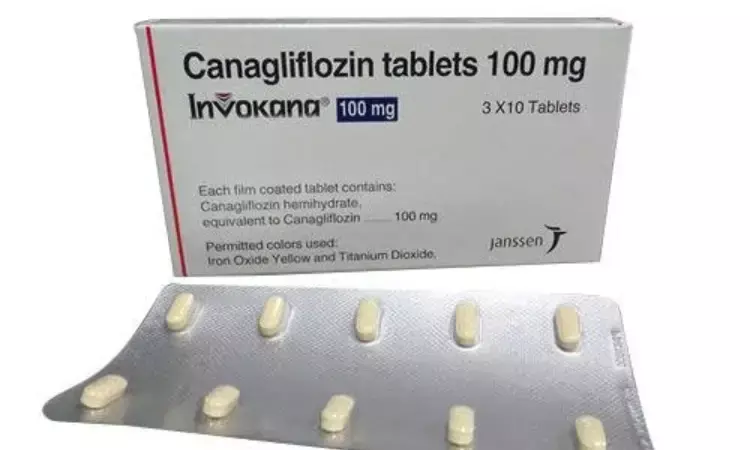- Home
- Medical news & Guidelines
- Anesthesiology
- Cardiology and CTVS
- Critical Care
- Dentistry
- Dermatology
- Diabetes and Endocrinology
- ENT
- Gastroenterology
- Medicine
- Nephrology
- Neurology
- Obstretics-Gynaecology
- Oncology
- Ophthalmology
- Orthopaedics
- Pediatrics-Neonatology
- Psychiatry
- Pulmonology
- Radiology
- Surgery
- Urology
- Laboratory Medicine
- Diet
- Nursing
- Paramedical
- Physiotherapy
- Health news
- Fact Check
- Bone Health Fact Check
- Brain Health Fact Check
- Cancer Related Fact Check
- Child Care Fact Check
- Dental and oral health fact check
- Diabetes and metabolic health fact check
- Diet and Nutrition Fact Check
- Eye and ENT Care Fact Check
- Fitness fact check
- Gut health fact check
- Heart health fact check
- Kidney health fact check
- Medical education fact check
- Men's health fact check
- Respiratory fact check
- Skin and hair care fact check
- Vaccine and Immunization fact check
- Women's health fact check
- AYUSH
- State News
- Andaman and Nicobar Islands
- Andhra Pradesh
- Arunachal Pradesh
- Assam
- Bihar
- Chandigarh
- Chattisgarh
- Dadra and Nagar Haveli
- Daman and Diu
- Delhi
- Goa
- Gujarat
- Haryana
- Himachal Pradesh
- Jammu & Kashmir
- Jharkhand
- Karnataka
- Kerala
- Ladakh
- Lakshadweep
- Madhya Pradesh
- Maharashtra
- Manipur
- Meghalaya
- Mizoram
- Nagaland
- Odisha
- Puducherry
- Punjab
- Rajasthan
- Sikkim
- Tamil Nadu
- Telangana
- Tripura
- Uttar Pradesh
- Uttrakhand
- West Bengal
- Medical Education
- Industry
Canagliflozin has no substantial effect on serum potassium levels: CANVAS program

Canagliflozin does not have a significant effect on serum potassium levels, suggests a Canagliflozin cardiovascular Assessment Study (CANVAS) published in the Clinical Kidney Journal.
In past studies, sodium-glucose cotransporter 2 inhibitor canagliflozin has been shown to reduce the risk of cardiovascular and renal events in patients with Type 2 diabetes mellitus and high risk. Pooled analyses of data from early studies and interim data from the CANagliflozin Cardiovascular Assessment Study (CANVAS) suggested that canagliflozin might lead to increases in serum potassium, particularly the 300 mg dose in patients with renal impairment, which is important because high serum potassium is associated with increased cardiovascular and renal risk. A study was conducted by a group of researchers in U.S.A. to study the effect of canagliflozin on serum potassium levels and hyperkalemia rates in the completed CANVAS Program.
The CANVAS Program included a total of 10,142 participants and was comprised of two comparable double-blind, randomized, placebo-controlled trials (CANVAS and CANVAS-Renal). Participants received canagliflozin 100 or 300 mg or a placebo. Serum potassium measurements were performed in a central laboratory and assessed at 6- month intervals.
The results of the study are as follows:
- In the CANVAS Program, mean potassium levels were generally consistent with canagliflozin and placebo, overall and by baseline estimated glomerular filtration rate.
- The risk of increased or decreased potassium was similar with canagliflozin and placebo overall and by baseline eGFR or use of renin–angiotensin–aldosterone system inhibitors; levels did not appear different by canagliflozin dose.
- Hyperkalemia and serious hyperkalemia adverse events were not different across groups.
The researcher concluded that in the CANVAS Program, there were no meaningful effects of canagliflozin on serum potassium in the overall population or key subgroups. Hyperkalemia adverse events were uncommon and occurred at comparable rates with canagliflozin and placebo.
Reference:
Effects of canagliflozin on serum potassium in the CANagliflozin cardioVascular Assessment Study (CANVAS) Program by Weir M et. al published in the Clinical Kidney Journal.
https://doi.org/10.1093/ckj/sfaa133
Dr. Shravani Dali has completed her BDS from Pravara institute of medical sciences, loni. Following which she extensively worked in the healthcare sector for 2+ years. She has been actively involved in writing blogs in field of health and wellness. Currently she is pursuing her Masters of public health-health administration from Tata institute of social sciences. She can be contacted at editorial@medicaldialogues.in.
Dr Kamal Kant Kohli-MBBS, DTCD- a chest specialist with more than 30 years of practice and a flair for writing clinical articles, Dr Kamal Kant Kohli joined Medical Dialogues as a Chief Editor of Medical News. Besides writing articles, as an editor, he proofreads and verifies all the medical content published on Medical Dialogues including those coming from journals, studies,medical conferences,guidelines etc. Email: drkohli@medicaldialogues.in. Contact no. 011-43720751


